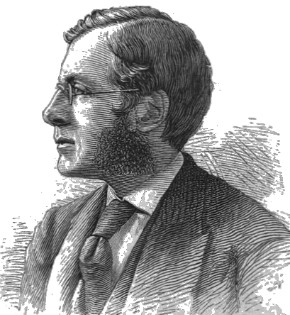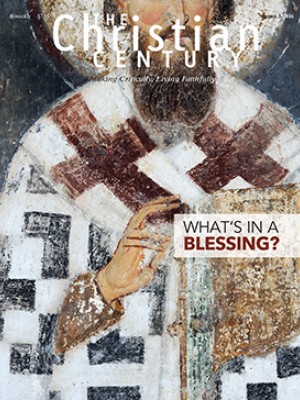Prophets of imagined futures

Lately I’ve been returning to an old love—re-reading William James. I see his defects more clearly now, but I still love him. Uniquely among philosophers, James made a literary art form out of affectionate curiosity. He was so gregarious, one of his contemporaries said, that he could make friends with the lampposts on Irving Street. Teleport James from whatever Swedenborgian otherworldly precinct he currently inhabits, and I imagine he would be just as ready to make friends with the LED streetlights. His empathy seemed boundless, yet as my husband reminds me, there were times when it fell short; one need only skim the lecture on saints in The Varieties of Religious Experience to see how deeply embedded was James’s predisposition to disparage traditional religion.
James acknowledged the distorting effect of all such predispositions; his essay “On a Certain Blindness in Human Beings” begins by noting “the stupidity and injustice of our opinions, so far as they deal with the significance of alien lives” and ends by declaring “hands off” on the negative evaluation of worldviews for which we lack immediate sympathy. To abide by this interdict, however, turned out to be a challenge even for the open-minded William James.
Read our latest issue or browse back issues.
While reading James, I stumbled upon a little book called The Religion of the Future, authored by James’s neighbor, Harvard’s legendary president Charles William Eliot, a progressive thinker like James with wide sympathies and conspicuous blind spots of his own. In this book, which originated in a 1909 address to the Harvard Summer School of Theology, Eliot predicted the emergence—along lines noticeably favorable to his predispositions—of a new religious consciousness. Purged of crude anthropomorphism, penitential breast-beating, and dramatic altar calls, the religion of the 20th century “will not rely on either a sudden conversion in this world or a sudden paradise in the next.” While salvaging the good things of the old religion, the new religion will devote its energies to social improvement rather than personal salvation. The 20th century will trust in providence but tether its camels, not looking for God to intervene directly in the affairs of nations or individuals. Admiration for exemplary leaders will replace the cult of the saints. No fairies or imps will haunt our dreams; no angels or demons will muddle our moral judgments.
Since Eliot’s future is our past, it’s easy for us to see where his prophecy missed the mark. But could we do much better? In 2014, Brazilian political leader and Harvard Law School philosopher Roberto Mangabeira Unger published a book bearing the same title as Eliot’s and striking some of the same notes. But Unger is more ambitious; his The Religion of the Future is one of several works in which he outlines a radical program for metaphysics and religion sans God.
Unger begins, like the Buddha in his first sermon, by calling attention to the sickness that stalks sentient existence. According to Unger, three “irreparable flaws” are built into the human condition: mortality, “groundlessness,” and insatiability. We experience abundant life only to discover that we have to die; we awaken to the power of reason only to find that the whole of reality exceeds our grasp; and despite our finitude, there is no limit to our desires. The world’s religions propose to console us for these incurable defects; thus, Unger tells us, Buddhism seeks to overcome the world, Confucianism to humanize the world, and the Abrahamic traditions to struggle against it, inciting both sacred and secular emancipation movements. These are the religions of the past, however, and there is no use holding on to them now that they’ve lost their power to convince; when we wake up from their enchantment we will see that they have made things worse by encouraging wishful thinking and reinforcing our condition of “belittlement.”
Unger’s project is a liberation theology for nonbelievers. His religion of the future will not cure us of mortality, groundlessness, or insatiability, but by teaching us to face these facts squarely and refuse to be defined by them, it will conquer our belittlement. Christianity dared to hope for divinization, but the religion of the future will divinize us here and now in the form of a “freer and bigger” life, courageous, loving, self-transcending, open to the future and to other people.
Unger is a consummate speculator—a rare academic figure who thinks big, even at the risk of going over the top. William James, for whom human nature was defined by its “willingness to live on a chance,” would have loved him. But my bets are on the religion of the past—not the “halfway house between belief and disbelief” that Unger justly criticizes, but the ancient household of faith. When I’m feeling hopeful about the future, I imagine a revival of full-strength religious traditions, a consequent rebirth of the arts, literature, and culture, and a world in which people of all faiths make common cause against poverty, violence, broken families, and disease. When my thoughts run to future disasters, I imagine a global religious awakening in response. But mostly I am skeptical about predictions, shaped as they are by our wishes or fears. If we’re uncertain about the future impact of Brexit or the November election, how much more so when our subject is the religion of the imagined future.






